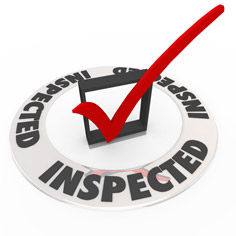
The Immigration and Nationality Act (INA) requires employers to verify the identity of their employees and their eligibility to work in the U.S. To comply, employers must retain original I-9 Forms for current employees and, for former employees, keep them for at least three years. These need not be submitted to the government but must be available for inspection. From time to time, U.S. Immigration and Customs Enforcement (ICE) ask to inspect the forms.
What Does an Inspection Entail?
An employer who receives a Notice of Inspection must produce its I-9s, usually within 3 business days, and may be asked for payroll records, employee lists, articles of incorporation, and business licenses. ICE may ask the employer to bring the documents to an ICE field office, or officials may visit the employer. At the inspection, in addition to printed documents, the employer must retrieve any electronically stored documents requested and provide the ICE officer with the hardware and software needed to view them. The employer must also provide an electronic summary of information in the I-9s, if one exists.
What Happens Afterwards?
After reviewing the I-9s, ICE may send the employer one or more of the following:
- Notice of Inspection Results, also known as a compliance letter, informing a business that it is in compliance.
- Notice of Discrepancies, informing the employer of problems with the employer's I-9s and documents submitted by the employee. The employer must provide a copy of the notice to the employee, who then must prove to ICE that he or she is eligible to work.
- Notice of Technical or Procedural Failures, listing technical violations and giving the employer ten business days to correct them. If not corrected in time, these failures may become "substantive "violations."
- Notice of Suspect Documents, stating that ICE has found an employee unauthorized to work. The employer must terminate the employee or face penalties. ICE gives the employer and employee an opportunity to show that this finding is in error.
- Warning Notice, notifying the employer that there are substantive verification violations, but that the circumstances do not warrant a fine.
- Notice of Intent to Fine (NIF), informing an employer that it has been found to have knowingly hired and employed ineligible workers. The employer must cease and may face fines and criminal sanctions. An NIF may also be sent for technical errors that an employer failed to correct.
What If ICE Decides to Fine an Employer for Violations?
In response to an NIF, employers may seek a hearing before an Administrative Hearing Officer or try to reach a settlement with ICE. If an employer does nothing, ICE will issue a Final Order.
Civil fines can be as low as $110 and as high as $1,100 for each employee, depending on mitigating and aggravating factors. Serious violations may also lead to prosecution for knowingly hiring unauthorized workers, document fraud, harboring, and other crimes. With the high stakes involved in being accused of I-9 violations, it is best to contact us to discuss the matter as early as possible. Franz Cobos, Esq.